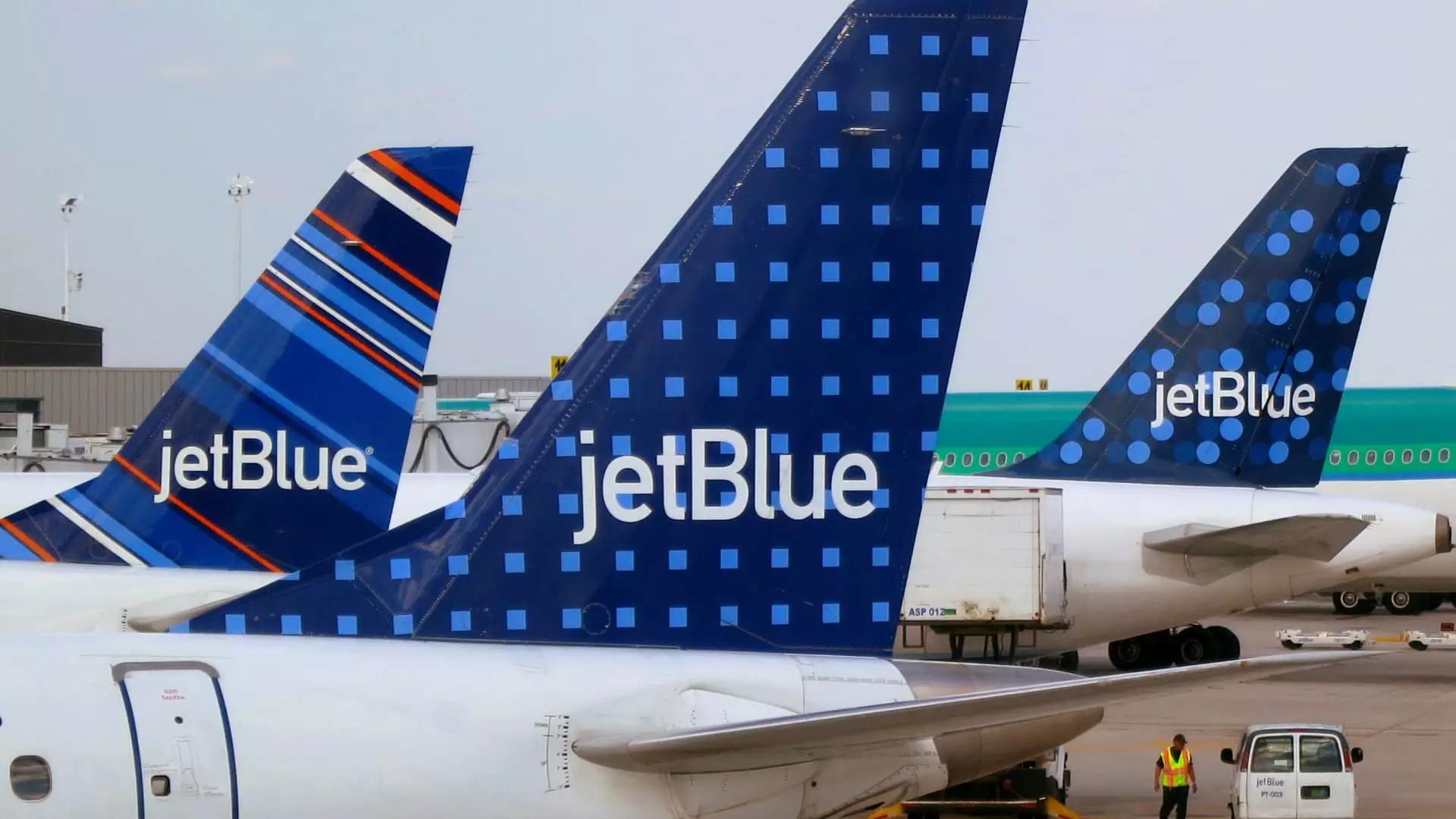The air travel industry represents a complex web of logistics, regulations, and customer service challenges. The recent $2 million fine imposed on JetBlue Airways by the Department of Transportation (DOT) has sparked discussions about reliability, accountability, and the efficiency of air travel in the United States. This landmark penalty—the first of its kind—highlights critical concerns regarding chronically delayed flights that affect countless travelers. As JetBlue faces scrutiny for its operational shortcomings, the question remains: how can the airline industry reconcile the gap between ambitious flight schedules and the realities of air traffic management?
According to the DOT, JetBlue’s performance between June 2022 and November 2023 was severely deficient on four specific routes, leading to over 145 significant delays. Notably, these routes included key travel corridors from JetBlue’s hub at John F. Kennedy International Airport to destinations like Raleigh-Durham and Orlando. This raises alarm bells; when an airline is responsible for over 70% of disruptions on popular routes, it reflects not only on that airline but also on broader operational standards within the industry. Transportation Secretary Pete Buttigieg emphasized that the DOT’s action serves as a reminder to the airline industry that accurate flight scheduling is not just a goal, but an expectation.
For JetBlue, this fine is not merely a financial setback but also a reputational challenge. The DOT’s definition of “chronically delayed” flights underscores the criteria against which airlines are measured and penalized. A flight needs to arrive more than 30 minutes late over half the time, generating the need for airlines to introspectively assess their flight scheduling practices. While JetBlue has acknowledged the settlement, the airline also pointed a finger at the U.S. government’s role in exacerbating travel delays through ineffective air traffic control systems.
The situation reveals deeper systemic issues that ail the aviation sector, particularly concerning air traffic management. JetBlue’s call for the government to address staffing shortages and modernize air traffic control technology is a recurring theme echoed across the aviation industry. Major airlines such as Delta and United have similarly stressed the urgent need for reform. The inability of the national air traffic control system to efficiently handle high volumes of flight operations can result in cascading delays that no single airline can effectively mitigate.
Moreover, the problem is exacerbated by the congestion prevalent in U.S. airspaces, particularly around major hubs like New York City and the Southeast. The demand for air travel continues to rise, especially post-pandemic, yet the infrastructure designed to manage it has not kept pace. It can be argued that unless there is a concerted effort by all stakeholders—airlines, the government, and the FAA—to enhance operational capacities, travelers will continue to face frustrations stemming from delays and cancellations.
JetBlue, ranked ninth of ten U.S. airlines in on-time performance with 71.3%, has shown tentative improvement, up from the previous year’s 64.9%. While this upward trend is encouraging, the disparity between their aspirations and realities highlights the importance of accountability. As airlines face penalties, they must also innovate to improve infrastructure and transparency. This may involve leveraging technology for better scheduling, enhancing customer communication, and providing more proactive support for individuals affected by delays.
The DOT’s willingness to investigate other airlines for similar practices suggests a shifting landscape in airline regulations, where companies must adhere not only to operational schedules but also to a customer-first approach. Establishing a balance between profitability and operational integrity is paramount in fostering traveler trust.
The fine against JetBlue underscores a pivotal moment in the aviation sector, prompting discussions about accountability and systemic challenges. It serves as a stark reminder that while airlines are responsible for managing flight logistics and customer experiences, a larger, outdated framework needs to catch up to meet modern demands. As all parties—from airlines to the government and regulatory agencies—work toward a more reliable air travel system, it is essential to remember that at the heart of the matter are the millions of passengers whose travel experiences rely on these critical reforms.



Leave a Reply